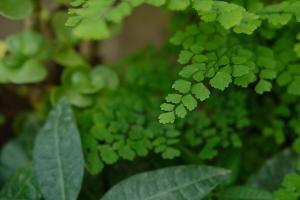Introduction
When planning an orchard, proper spacing of fruit trees is vital to ensure healthy growth and maximum yield. The spacing requirements vary depending on the type of fruit tree, the rootstock, and the soil conditions. In this article, we will discuss how far apart to plant fruit trees in an orchard.
Factors to Consider
Several factors must be considered when determining the spacing of fruit trees in the orchard. The size of the tree at maturity is a primary consideration. The type of fruit tree rootstock can also play an important role in determining how far apart trees should be planted. The soil type and management practices, such as irrigation and fertilization, can also influence the spacing of the trees.
Recommended Spacing for Different Fruit Trees
The spacing requirements for each fruit tree will vary depending on the type of fruit tree and the size of the mature tree. Here are some general guidelines for the spacing of common fruit trees:
1. Apple Trees: Apple trees should be spaced 12 to 20 feet apart, depending on the rootstock and the size of the mature tree.
2. Peach Trees: Peach trees should be spaced 12 to 15 feet apart, depending on the rootstock and the size of the mature tree.
3. Plum Trees: Plum trees should be spaced 12 to 15 feet apart, depending on the rootstock and the size of the mature tree.
4. Cherry Trees: Cherry trees should be spaced 18 to 20 feet apart, depending on the rootstock and the size of the mature tree.
Spacing for High Density Planting
High-density planting is becoming popular among fruit growers as it allows them to maximize yields and use land more effectively. In high-density orchards, fruit trees are planted in closer proximity than normal. Typically, trees are spaced 3 to 5 feet apart with a central leader and regular pruning to manage the tree shape.
Spacing in Different Soil Types
Soil type is another factor that can determine the spacing of fruit trees. In sandy soils, trees should be spaced closer together to ensure adequate root coverage to prevent soil erosion. In heavy clay soils, trees should be spaced further apart to avoid waterlogging.
Conclusion
Proper spacing of fruit trees is crucial to ensure the healthy growth and maximum yield of your orchard. Understanding the spacing requirements for different types of fruit trees and soil conditions can help you make informed decisions when planning your orchard. By following these guidelines, you can create a healthy, productive, and profitable orchard for years to come.

 how many times do yo...
how many times do yo... how many planted tre...
how many planted tre... how many pine trees ...
how many pine trees ... how many pecan trees...
how many pecan trees... how many plants comp...
how many plants comp... how many plants can ...
how many plants can ... how many plants and ...
how many plants and ... how many pepper plan...
how many pepper plan...































